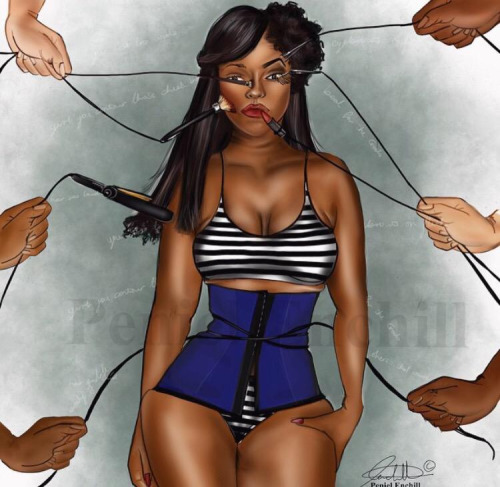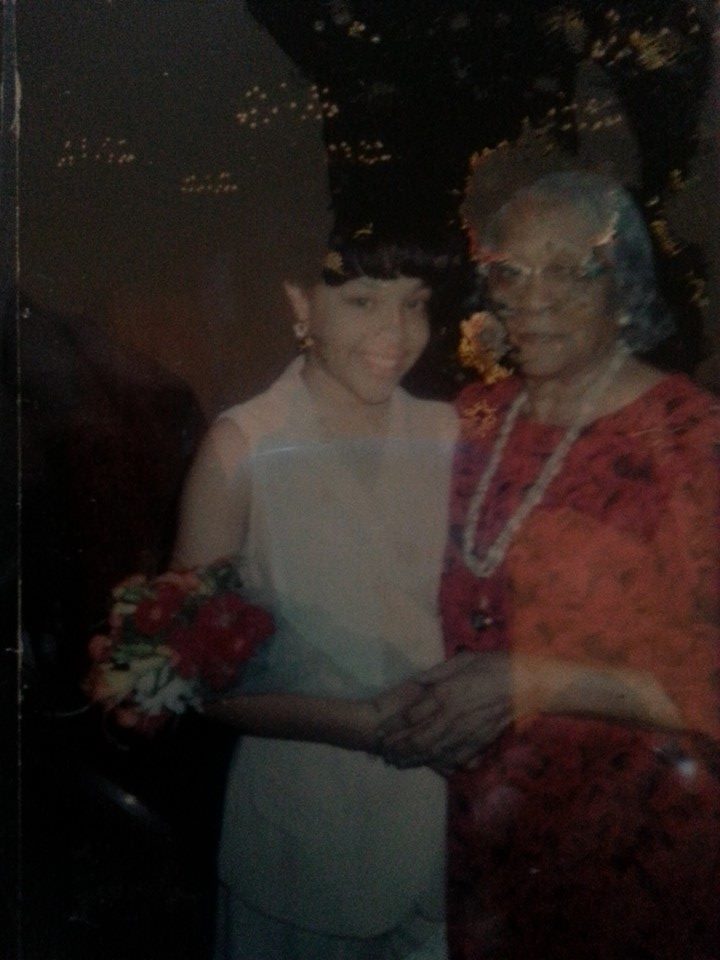Last week I attended my very first Congressional Black Caucus Annual Leadership Summit (ALC) in Washington DC. It’s considered by many to be the leading policy conference on issues impacting African Americans and the global black community. Thought leaders, legislators and concerned citizens engage on economic development, civil and social justice, public health, and education issues. This year I was proud to be invited to ALC promote my book, “They’re All The Same Girl” in the Author’s Pavilion, but I was also very fortunate to observe real advocacy in action!
By attending this year’s ALC I got a front row  seat to see what it looks like when advocacy evolves step by step. It often starts from an initial public outcry of an injustice, and then gains momentum as a glaring cause that should be supported. It then can swiftly become a burgeoning social media hashtag movement, and then develop into a potential piece of policy that’s drafted, lobbied, and accepted as a dynamic solution to a prevalent dilemma. This evolutionary piece of policy that I’m fortunate enough to witness the evolution of is known as the Congressional Caucus on Black Women and Girls.
seat to see what it looks like when advocacy evolves step by step. It often starts from an initial public outcry of an injustice, and then gains momentum as a glaring cause that should be supported. It then can swiftly become a burgeoning social media hashtag movement, and then develop into a potential piece of policy that’s drafted, lobbied, and accepted as a dynamic solution to a prevalent dilemma. This evolutionary piece of policy that I’m fortunate enough to witness the evolution of is known as the Congressional Caucus on Black Women and Girls.
In April of this year, the caucus’ co-chairs U.S. Reps. Bonnie Watson Coleman (D-N.J.), Robin Kelly (D-Ill.) and Yvette D. Clarke (D-N.Y.) publicly presented this caucus which has been described as a group devoted to creating public policy that “eliminates significant barriers and disparities experienced by black women.” The caucus is the first to ever set to make the needs of black women and girls a priority.
“Black women and girls are disproportionately affected by myriad [of] socioeconomic issues that diminish their quality of life and threaten the well-being of their families and communities,” Rep. Kelly said in a release obtained by The Huffington Post.
“The Congressional Caucus on Black Women and Girls gives black women a seat at the table for the crucial discussion on the policies that impact them while also providing a framework for creating opportunities and eliminating barriers to success for black women,” she added.
The caucus was inspired by a collective of several women involved in the #SheWoke committee which is comprised of leading black women activists who consistently advocate for black women’s rights. It’s been described that events like the Sandra Bland Case helped to ignite the drive behind this movement.

In 2015 and 2016 organizations like Black Lives Matter (BLM) ignited an urgent national conversation about police killings of unarmed black citizens. Online tools have been credited as critical in this effort to bring attention to these far too frequent incidences of racially charged police brutality. We’ve seen the hashtags that have come to signify these movements and the underlying outrage as a result of these injustices including: #icantbreathe, #handsupdontshoot, #iamtravonmartin, etc. Many, including myself, have questioned whether we’ll see more people move their activism and frustration beyond the hashtags that they post on their social media pages to offline action that can galvanize citizen’s support, organizing, forums for real dialogue, and initiatives that can provide real solutions to this problem.
Considering it was also birthed from a hashtag movement (#SheWoke) I’ve been impressed as I’ve watched my own US Representative Robin Kelly, and her respective co-chairs real take a jump start on getting real action behind the caucus for Black Women and Girls. They have been real #blackgirlmagic in action. Rep. Kelly held the first symposium for the caucus in Chicago preceding the ALC in August. She brought together local professional women and experts to discuss black women’s health, issues for black girls, and economic empowerment for black women.
At this year’s ALC in Washington, there were symposiums directly tied into the mission of the caucus including a discussion on black women and girls in American media, featuring Essence Magazine Editor-in-Chief, Vanessa DeLuca. There was a brain trust panel that addressed the issues facing ALL black youth, black boys, AND black girls. And very appropriately during this brain trust panel, Monique Morrison researcher, advocate for black girls, and author of The Push Out was a panelist, along with Kimberly Bryant of Black Girls Code. During the Congressional Black Caucus ALC weekend, The Black Women’s Health Imperative also hosted a reception that honored Representatives Kelly, Clark, and Colemon on championing the establishment of the caucus.
Since their announcement in April, Sisters Kelly, Clark, and Watson, have almost effortlessly been creating opportunities to create public awareness about the dire need for the caucus, establishing clear objectives, and obtaining necessary feedback from their constituents. They even shared that they plan to host events in markets that are not represented by black congressional leaders, but in places where black women still may live, and are in need of support, and a voice like the US Pacific Northwest.
Like a little sister in awe, I’ve watched Reps. Kelly, Clark, and Watson so dynamically move this initiative forward with skill, real leadership, and in such a divinely loving way. They’re intently listening to the needs of their constituents, intuitively looking at their own lives and others close to them as black women for authentic reference, putting together necessary resources, providing platforms, and brining young women like me along to learn and build my capacity to expand my impact on black girls with Polished Pebbles. In addition to being highly respected elected officials, they’re like three aunties who found out somebody was bullying you at school, and they’re putting all their energies and resources together to right that wrong, with the school principal, your teacher, the bully’s parents, and making sure you know how to fight and defend yourself at the same time. Although many question the validity of hash tag movements as an effective to impact change to today’s most pressing issues in our community, I think the co-chairs of the Congressional Caucus for Black Women and Girls are an excellent example of how to move from an online #hashtag movement to offline heartfelt accountability. Let me one of the many who continue to say to them #thankyou.
Note: Congresswoman Robin Kelly will be one of the honorees at this year’s Polished Pebbles Annual Fundraiser, “They’re All The Same Girl.” Join us, and purchase your ticket here: https://www.eventbrite.com/e/polished-pebbles-theyre-all-the-same-girl-fundraiser-reception-tickets-27042223017








 lead to the big finale. For example, if your annual goal is to organize your finances, have a weekly goal: “Track spending and donations” and a monthly goal: “Create monthly budget sheet”.
lead to the big finale. For example, if your annual goal is to organize your finances, have a weekly goal: “Track spending and donations” and a monthly goal: “Create monthly budget sheet”.







 seat to see what it looks like when advocacy evolves step by step. It often starts from an initial public outcry of an injustice, and then gains momentum as a glaring cause that should be supported. It then can swiftly become a burgeoning social media hashtag movement, and then develop into a potential piece of policy that’s drafted, lobbied, and accepted as a dynamic solution to a prevalent dilemma. This evolutionary piece of policy that I’m fortunate enough to witness the evolution of is known as the Congressional Caucus on Black Women and Girls.
seat to see what it looks like when advocacy evolves step by step. It often starts from an initial public outcry of an injustice, and then gains momentum as a glaring cause that should be supported. It then can swiftly become a burgeoning social media hashtag movement, and then develop into a potential piece of policy that’s drafted, lobbied, and accepted as a dynamic solution to a prevalent dilemma. This evolutionary piece of policy that I’m fortunate enough to witness the evolution of is known as the Congressional Caucus on Black Women and Girls.


 countries: Costa Rica, El Salvador, Guatemala, Honduras and Nicaragua. Not to mention that more countries–Mexico, Chile, and Belize–also recognize their independence during the month period between September 15 and October 15.
countries: Costa Rica, El Salvador, Guatemala, Honduras and Nicaragua. Not to mention that more countries–Mexico, Chile, and Belize–also recognize their independence during the month period between September 15 and October 15.
